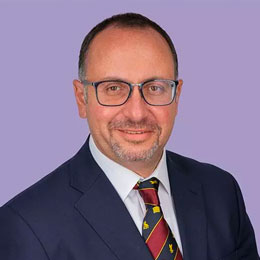Brain Tumour Neurosurgery
With Stereotactic Radiosurgery, radiation treatment can be directed accurately at a tumour. As this form of treatment requires specialised expertise, not routinely available in most hospitals. The phrase stereotactic radiosurgery may be used, but it is not quite brain surgery. It entails administering a significant amount of radiation to a restricted space. Usually, you only receive one single dose, with one single treatment.
Radiation is delivered using stereotactic radiation from many different angles. The tumour or lesions are targeted where the beams converge. This application of Radiation treatment reduces the danger of adverse effects by giving the tumour a high dosage of radiation while protecting the healthy tissues around it.
Sheffield Oncology centre is one of the very few centre equipped with Gamma Knife machine to deliver this type of therapy.
Not everyone can be eligible for stereotactic radiotherapy or radiosurgery.
It is more likely to be suitable it if the tumour is less than 3 cm in diameter, and it is one of the following types:
- Pituitary gland tumor
- Vestibular schwannoma
- Meningioma that originated in the base of the skull
- Cancer that has moved from another part of the body to the brain (secondary brain tumor).
Primary brain tumors differ from secondary brain tumors in several ways. The secondary brain tumors are the subject of separate information.
About Metastatic Brain Tumours
What are Metastatic Brain Tumours?
In some cancer types, the tumor’s original site can become the site of the disease. The initial site, where the disease first manifests, is also the name given to the primary tumor that arises there. By dislodging from the underlying tumor and migrating through the bloodstream, lymphatic system, or spinal fluid, cancer cells can disperse far from the site of the original cancer. This may involve a single lesion (called a metastasis) or a number of tumors (called metastases).
Although metastases might theoretically spread to any part of the body, only brain metastases can be effectively treated with Gamma Knife Radiotherapy. Metastases or secondary tumors are the terms used to describe these tumors. These metastases can be classified as solitary, meaning there is only one, or secondary tumours.
The most common types of cancers that can spread to the brain originate in the lung, breast, renal, colon, skin (melanoma) and kidney
Types of Metastatic Brain Tumours
There are over 100 different types of brain tumours that can start in the brain, or spinal cord. They are usually named after the type of cell they develop from.
Glioma, is the most common type of brain tumours in adults.
Tumours that start in the brain are called primary brain tumours, whereas cancer that has spread to the brain from somewhere else in the body, is called secondary brain cancer.
- Acoustic neuromashttps://amethyst-radiotherapy.co.uk/brain-tumours/acoustic-neuroma/
- Meningiomas https://amethyst-radiotherapy.co.uk/brain-tumours/meningioma/
- Pituitary Tumours https://amethyst-radiotherapy.co.uk/brain-tumours/pituitary-tumours/
- Vestibular Shwannomas https://amethyst-radiotherapy.co.uk/brain-tumours/acoustic-neuroma/
- Metastatic Brain Tumours https://amethyst-radiotherapy.co.uk/metastatic-brain-tumours/
Causes and risk factors
When cancer that originated from another body organ travels to the brain, it results in metastatic brain tumours. The areas of cancer in the brain made up of lung cancer cells if your cancer originated in your lung and has spread there.
This is distinct from having a primary brain cancer, which began in the brain. In that situation, the cancer is formed up of malignant brain cells. Some brain metastases in patients are found during examinations of their main tumor even when they show no symptoms or telltale signs. Brain metastases are occasionally discovered before the original malignancy has been identified.
In this situation, the tumour is known as a secondary brain tumour from an unknown primary.
Metastatic Brain Tumour symptoms and diagnosis
What are the symptoms?
They include:
- Declining hearing, tinnitus (a ringing noise) and loss of balance.
- Headaches
- Nausea and vomiting
- Seizure
- Weakness or numbness in parts of the body, such as the face, arms or legs
- Problems with memory and confusion
- Changes in behaviour and personality
- Problems with balance and coordination
- Problems with speech
- Problems with swallowing
You may have a number of tests to diagnose secondary brain cancer. Your doctor will examine you thoroughly. They will test your reflexes and may test the power and feeling in your arms and legs. They may also look into your eyes using a special light and lens (ophthalmoscope), to see if the nerve at the back of the eye is swollen. This can be a sign of raised pressure on the brain caused by a tumour.
You will have a brain CT or MRI scan.
Metastatic Brain Tumours treatments
A multidisciplinary team of doctors will discuss the options to maximise control and possibly eradication of the tumour while minimising morbidity or risk to the patient, after obtaining a certain diagnosis of the brain tumour, finishing the staging of the systemic cancer, and stabilising the patient’s medical condition.
Non-chemotherapeutic and chemotherapeutic medications, surgical methods to remove the tumor while preventing any brain damage or injury, and radiation are three essential elements of treatment patients with metastatic brain tumors.
Brain Tumour Neurosurgery
Clinical Team
Specialising in Brain Tumour Neurosurgery
Neurosurgeon

Mr Matthias Radatz
Senior Consultant Neurosurgeon
CCST Neurosurgery MD FRCS
Medical Director Thornbury Radiosurgery Centre, Sheffield
Personal Profile
Mr. Matthias Radatz is a Sheffield-based consultant neurosurgeon with extensive experience, who works at the Thornbury Radiosurgery Center. Mr. Radatz is a pioneer in the use of the Gamma Knife in stereotactic neurosurgery for the treatment of cranial and extra-cranial CNS lesions. He has extensive experience in the treatment of cavernoma, brain and pituitary tumors, glioblastoma, arteriovenous malformation, meningioma, and metastases.
After earning his medical degree from the University of Berlin in 1991, Mr. Radatz underwent neurosurgery-specific training at the Royal Hallamshire Hospital in Sheffield and the city’s Krankenhaus Neukölln. Now serving as the head physician at Sheffield’s Royal Hallamshire Hospital, Mr. Radatz was appointed consultant neurosurgeon in 2002.
His appointment as President of the British Radiosurgery Society and as the radiosurgery representative on a national neuro-oncological and vascular interdisciplinary team, are only two of the high positions he has held in professional organizations serving the neurosurgical community. Peer-reviewed publications have published Mr. Radatz’s considerable academic work, and he is well regarded as an authority in his field. Overall, he is a highly respected practitioner, lecturer, and leader in the field of neurosurgery thanks to his experience and skill.
Professional Memberships
- Program director, Yorkshire and Humber Deanery, Sheffield/Hull rotation (present)
- Radiosurgery representative, Neuro-oncological and vascular MDT (present)
- Chair, Stereotactic Radiosurgery (2013 – present)
- Local negotiating committee member, Sheffield Teaching Hospital NHS Foundation Trust (2012 – present)
- Specialist advisory committee member, Neurosurgery (2010 – present)
- President, British Radiosurgery Society (present)
- Council member, Society of British Neurological Surgeons (present)
- Member, British Radiosurgery Society
- Fellow, Royal College of Surgeons
- Member, Society of British Neurological Surgeons
Clinical Interests
- Arteriovenous malformation
- Brain tumour
- Cavernoma
- Gamma knife
- Pituitary tumours
- Trigeminal neuralgia
Consultant Neurosurgeon
Consultant Neurosurgeon
Consultant Neurosurgeon
Get in touch
Request an appointment with one of our specialists:
Call us
0114 4381 412





